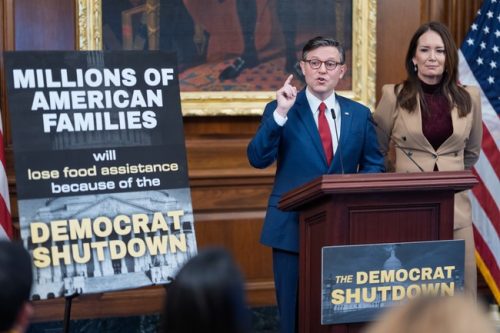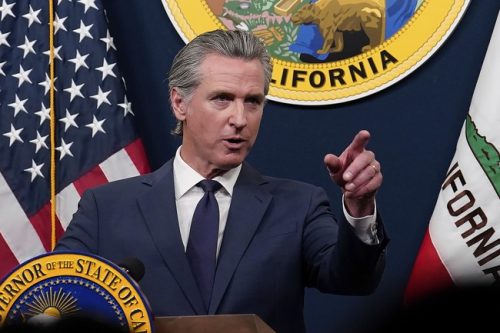Seattle’s mayoral contest has quietly joined the conversation about socialist wins in big cities, as progressive Kate Wilson has closed a surprising gap on incumbent Bruce Harrell. Mail-in ballots shuffled the numbers, and what looked like a comfortable lead for Harrell on election night has tightened into a razor-thin margin. The vote count, certification timeline, and the candidates’ positions matter because a Wilson victory would reshape city policy in ways conservatives worry about.
Most eyes were on New York City, but Seattle’s race deserves attention for the same reason: a self-described socialist could take the mayor’s office. Bruce Harrell led handily on election night, but as mail-in ballots trickled in, Kate Wilson narrowed the gap to a few hundred votes and now sits narrowly ahead. That swing highlights how late-arriving ballots in certain cities tend to favor progressive candidates.
The vote movement is dramatic. Harrell had an 11,000-vote advantage right after Election Day, and that comfortable lead translated into what looked like an eight-point edge. As counting continued, Wilson has steadily reduced that margin, making certification and potential recounts pivotal moments for the final outcome. For now, both campaigns emphasize counting every ballot while the clock ticks toward official certification.
Katie Wilson held onto her lead a week into ballot counting in Seattle’s mayoral race.
Wilson was 1,346 votes ahead of incumbent Mayor Bruce Harrell after Tuesday’s ballot drop. She’d been up 91 votes the day before.
About 1,400 ballots remain to be counted, according to Halei Waktins, communications director at King County’s election department.
The race is still within the margin for a recount.
The Wilson campaign stopped just short of declaring victory on Tuesday.
“We want to wait until every vote has been counted, but we believe that we’ve won this race,” the campaign said in a statement to KUOW.
The Harrell campaign released the following: “While not the direction we were hoping for, this remains a very close race, and we want to ensure every vote is counted.”
County officials will certify the results of this election on Nov. 25. The state certifies the following week. A machine recount would take place after certification, if fewer than 2,000 votes separate the candidate and less than a half a percent of the total votes cast for both.
Political observers see a clear pattern in Seattle: late-arriving ballots trend progressive, often from younger voters who submit ballots closer to deadlines. Wilson herself noted that younger and progressive votes tend to come in later, while older voters mail theirs earlier. That dynamic is common in large, liberal cities and helps explain the post-election-night swings that sometimes produce surprising finishes.
Statistically, Harrell would need an overwhelming share of the remaining ballots to reclaim a lead—roughly 80 percent of uncounted votes—an outcome many find unlikely. Recent ballot drops showed Wilson earning about 55 to 60 percent of those returns, giving her a realistic path to victory unless the remaining ballots break sharply in Harrell’s favor. If the count stays close, a machine recount could be triggered under local rules.
Wilson’s platform reads like a playbook for city-level socialism: publicly owned affordable housing, rent control, expanded public transit with lower fares, and higher wages backed by stronger unions. She also favors universal childcare and universal health care, and expects to raise taxes on big businesses and wealthy residents to pay for it. Those aren’t vague promises; they are concrete policy goals that would change how Seattle funds services and manages growth.
Reminder that leading Seattle mayoral candidate and progressive socialist, Katie Wilson, was caught using alleged ANTIFA militants as her security.
This is where we are at. pic.twitter.com/SB2PIaaOiL
— Cam Higby 🇺🇸 (@camhigby) October 31, 2025
She identifies as a socialist but is not formally part of the Democratic Socialists of America, though she’s aligned with several far-left groups. Wilson has said her first four years “may not differ significantly from a progressive Democrat’s approach,” but she plans to introduce Marxist policies over the long term. That line is meant to reassure moderates, but it also signals a long-game strategy for shifting city governance.
From a Republican perspective, there are practical concerns about governance and taxpayer impact. Policies like public ownership of housing and aggressive rent controls sound appealing on paper but can discourage private investment and complicate housing supply. Funding big expansions in transit, childcare, and health care with higher taxes also raises questions about who ultimately pays and whether those measures will improve outcomes for residents.
Seattle voters are choosing not just a mayor, but a direction for the city’s economy and civic priorities. A Wilson win would mark another city moving toward socialist-style governance, and it would offer a test case of whether those policies deliver on their promises or create new challenges for residents and businesses. Either way, the final certified results and any recount will be closely watched across the country.






